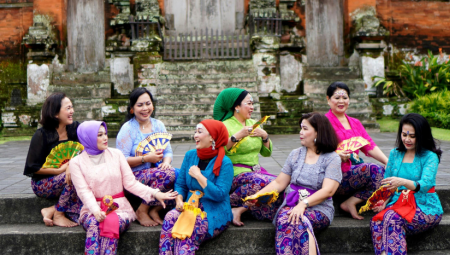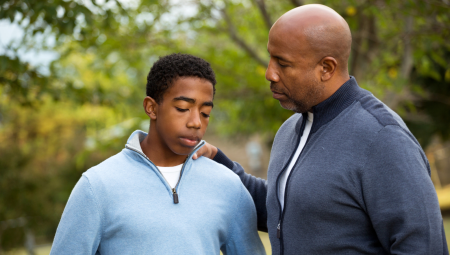Background
A unique longitudinal qualitative study following up on a sample of lesbian couples (N = 20), first interviewed in 1999/2000. These couples had their first and subsequent children in the context of their relationship. Sociologically little is known about how such family relationships and connections work out over time; children’s voices are particularly unrepresented. The original sample of lesbian parents plus their children were invited to take part in separate or joint interviews (depending on participant preference). Interviews will explore their understandings and experiences of family and kin relationships within their own household and within the wider societal context of their lives - and how these have evolved over time. Lesbian parent families challenge dominant norms and mores of family life, in particular the heterosexual and biological imperatives of reproduction and family life; as such findings will critically engage with and further sociological theoretical debates on kinship and family relationships in the context of an increasing diversity of family forms.
Objectives
- Explored how decisions to conceive children by donor insemination work out over time
- Investigated experiences and perceptions of genetic and non-genetic connections within their families as well as the nature and meaning of wider kinship ties for both parents and children
- Examined views on parents’ understandings of meeting children’s needs and well-being and those constructed through policy and family law
- Mapped out interpretations of the shifting legal and societal context within which these families are situated – e.g. legislative changes including civil partnerships and the cultural emphasis on genetic knowledge and connections
- To develop understandings of what happens if lesbian parent families separate
Activity
30 women from 15 couples were contacted. In this sample of 15 couples; 5 couples were still together and 10 couples had separated. 27 women were interviewed in total. Of the 15 couples - an additional 5 children had been born or adopted since first contact and within their original relationship. A total of 27 children in the sample and interviews were carried out with 10 of these children – all now young adults.
This study has added to an existing qualitative dataset of 20 lesbian parent couples. Fieldwork for the original study took place in 1999/2000 and the follow up interviews revisiting 15 of the original twenty families took place almost two decades later, in 2019/2020. As far as aware, there is no published research to date that offers such a longitudinal sociological perspective on lesbian parent families. This study has provided a unique opportunity to address this gap.
This is significant for a number of reasons. The subsequent period, 2000-2020 has seen major socio-legal shifts addressing the rights of LGBT people (e.g. rights for same sex partnerships and an increased acceptance of same-sex parents). As such the study sheds light on living through a period of changes that have had significant impacts on the lives of the study participants. At the time when participants were planning and having their first born children, they were doing so during a period of time when legislation stated that a local authority "shall not intentionally promote homosexuality or publish material with the intention of promoting homosexuality" or "promote the teaching … of the acceptability of homosexuality as a pretended family relationship" (Clause 28 of the Local Government Act 1988 and not repealed in England until 2003).
For those who had children via donor clinics there was a requirement, contained in section 13 of the Human Fertilisation and Embryology Act of 1990, to consider ‘the welfare of any child who may be born as a result of the treatment, including the need of that child for a father’. This was not changed until 2008. Many participants reflected back on this history and identified and felt proud to be ‘pioneers’, paving the way for lesbian parenthood and parenting without a male parent to become more visible and accepted. Overall, over the years there has been an increasing emphasis placed on the importance of genetic knowledge and connections (as one example, young people conceived using sperm donated after April 2005 can ask for identifying information about the donor when they reach the age of 18). In the original interviews there were concerns or at least anticipatory questions raised by participants about what issues might come up for their children seeking knowledge of their paternal genetic origins, especially for those born conceived by donor insemination at HFEA regulated clinics at a time when donor anonymity was protected. Overall, young people have not been particularly curious to know more about the donors. In some cases, this route in closed off to them due to donor anonymity but this has not come up as an issue. In other cases, the majority of young people with known donors (who have not had ongoing involvement in their lives) have also not made attempts to make contact with their donor. Some young people have had some ongoing contact with their donor.
Outputs and potential impact
There is a growing body of literature that has investigated heterosexual donor conception; my work adds to a smaller body of work which investigates the experiences of single women and lesbian couples. My research explores lesbian parents’ decisions, views and experiences of accessing donor sperm inside and outside reproductive health clinics. Findings highlight the differences embedded in the two conception routes with regard to donor recruitment and access to donor sperm. It also explores lesbian parents’ experiences of dealing with health care professionals including midwives and health visitors. Importantly, my research has captured lesbian parents’ views at the time of conceiving their children and looking back on these experiences over time.
Resources
Book proposal being developed.
Papers from the original study:
- Almack, K (2008). Display Work: lesbian parent couples and their families of origin negotiating new kin relationships. Sociology, 42 (6), 1183-1199.
- Almack, K. (2008). A reflexive account of the ways in which a researcher's identity/ experiences may impact on the processes of doing research. Sociological Research Online, 13(1); http://www.socresonline.org.uk/13/1/4.html. 1669
- Almack, K. (2007). Out and about: negotiating the process of disclosure of lesbian parenthood. Sociological Research Online, 12 (1); http://www.socresonline.org.uk/12/1/almack.html.
- Almack, K. (2006). Seeking Sperm: Accounts of lesbian couples' reproductive decision making and understandings of the needs of the child. International Journal of Law, Policy and the Family, 20 (1), 1-22.
- Almack, K. (2005). What's in a name? An exploration of the significance of the choice of surnames given to the children, born within female same sex families. Sexualities, 8 (2): 239-254.
Book chapter:
Almack, K. (2011) Display Work: Lesbian Parent Couples and their Families of Origin Negotiating New Kin Relationships with Commentaries by Liz Short and Roisin Ryan-Flood in Dermott, E. and Seymour, J. (editors) Displaying Families: A New Concept for the Sociology of Family Life. Palgrave Macmillan, 102-22
Doctoral thesis:
Almack, K. (2002). Women Parenting Together: Motherhood and Family Life in Same Sex Relationships, Sociology and Social Policy, University of Nottingham
Who was involved
Principal Investigator
Kathryn Almack,
E: k.almack@herts.ac.uk





